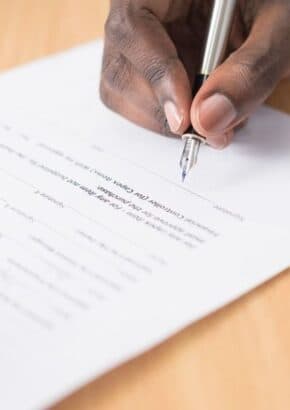In Short
- You must have a New Zealand-based sponsor to sell medical devices.
- All medical devices must comply with safety and record-keeping requirements.
- The Consumer Guarantees Act ensures devices meet quality and performance standards.
Tips for Businesses
Ensure your medical devices comply with all New Zealand regulations, including having a sponsor and maintaining accurate records. Be aware of consumer protection laws to avoid costly legal issues, as failing to meet standards can result in repairs, refunds, or replacements.
If you manufacture or distribute medical devices and are looking to enter the New Zealand market, there are several important legal requirements you need to be aware of. NZ has specific regulations around the importation, sponsorship, notification and advertising of medical devices, which act to protect consumers. This article will outline the key points businesses should know before selling medical devices in New Zealand.
Definition of a Medical Device
Under NZ law, a medical device is any instrument, apparatus, appliance, or other article intended for therapeutic use on humans, but does not achieve its principal action through pharmacological, immunological, or metabolic means.
Therapeutic purposes means any of the following purposes:
- preventing, diagnosing, monitoring, alleviating, treating, curing, or compensating for a disease, ailment, defect, or injury;
- influencing, inhibiting, or modifying a physiological process;
- testing the susceptibility of persons to a disease or ailment;
- influencing, controlling, or preventing conception;
- testing for pregnancy; and
- investigating, replacing, or modifying parts of the human anatomy.
Therefore, many products have a therapeutic purpose, including (but not limited to):
- surgical instruments;
- contact lenses;
- dental equipment;
- blood pressure cuffs;
- thermometers; and
- condoms.

To protect your business, ensure supplier contracts meet your business’ needs. Our free Commercial Contracts Checklist will help.
Requirement for a Sponsor
All medical devices sold in NZ must have a sponsor, an NZ-based person or organisation that is the legal supplier of the devices. Usually, the sponsor is the entity responsible for importing the devices into NZ or manufacturing the devices within the country.
To legally act as a sponsor, the entity must be registered and have a principal place of business in NZ. Key responsibilities of the sponsor include:
- ensuring the medical devices are safe for their intended purpose;
- notifying the Web Assisted Notification of Devices (WAND) database with the details of the devices within 30 days of beginning to sell them;
- maintaining accurate device information in the WAND database;
- keeping distribution records to enable product recalls if needed;
- immediately notifying Medsafe (the medicines and medical devices safety authority) of any recalls or corrective actions; and
- ensuring advertising and labelling comply with regulations.
Notification to the WAND Database
Before being able to sell medical devices in NZ, the sponsor must submit a notification about the devices to the WAND database. This involves providing details on the:
- risk classification;
- manufacturer;
- product description; and
- contact details for the sponsor.
Notification is free but a legal requirement. Failure to make accurate and timely notifications can result in penalties.
Distribution Records and Recalls
Maintaining proper distribution records is critical for medical device sponsors. If a product defect or safety issue requires a recall, the sponsor must be able to trace which customers have been supplied with the affected devices.
Continue reading this article below the formConsumer Protection Laws
When selling medical devices to consumers (individuals purchasing for personal/domestic use), the Consumer Guarantees Act 1993 provides certain automatic guarantees that products must:
- meet minimum quality standards;
- be fit for purpose;
- arrive within a reasonable timeframe; and
- be reasonably priced.
If you do not meet these guarantees, consumers have the right to remedies such as a repair, replacement or refund.
Additionally, the Fair Trading Act 1986 prohibits misleading marketing claims or deceptive conduct that could mislead consumers. All product claims must be truthful, accurate and substantiated.
Key Takeaways
By understanding and addressing the regulations around sponsorship, notification, record-keeping, consumer laws, and marketing, your business can compliantly sell medical devices to companies and consumers across NZ. It is important to be aware that medical devices are highly regulated, and it is always recommended to seek bespoke legal advice before selling medical devices in NZ.
If your business sells medical devices, our experienced business lawyers can assist as part of our LegalVision membership. For a low monthly fee, you will have unlimited access to lawyers to answer your questions and draft and review your documents. Call us today 0800 005 570 or visit our membership page.
Frequently Asked Questions
You need to have a New Zealand-based sponsor who ensures the medical devices meet safety, notification, and record-keeping requirements.
The Consumer Guarantees Act 1993 requires devices to meet quality standards, be fit for purpose and have accurate claims. It offers remedies like repairs, replacements, or refunds.
We appreciate your feedback – your submission has been successfully received.












